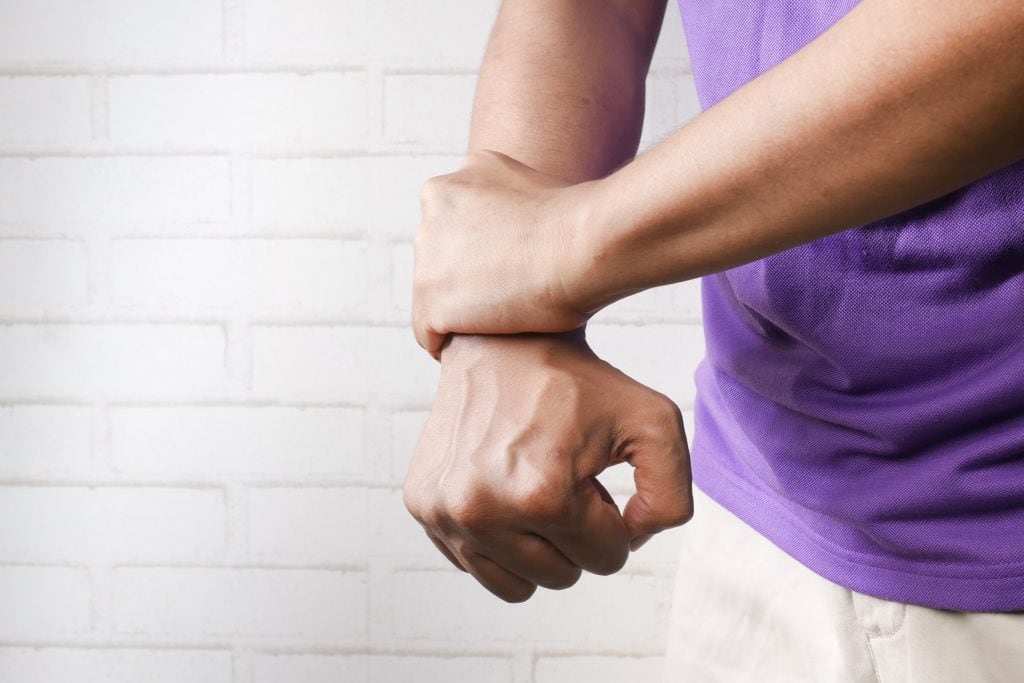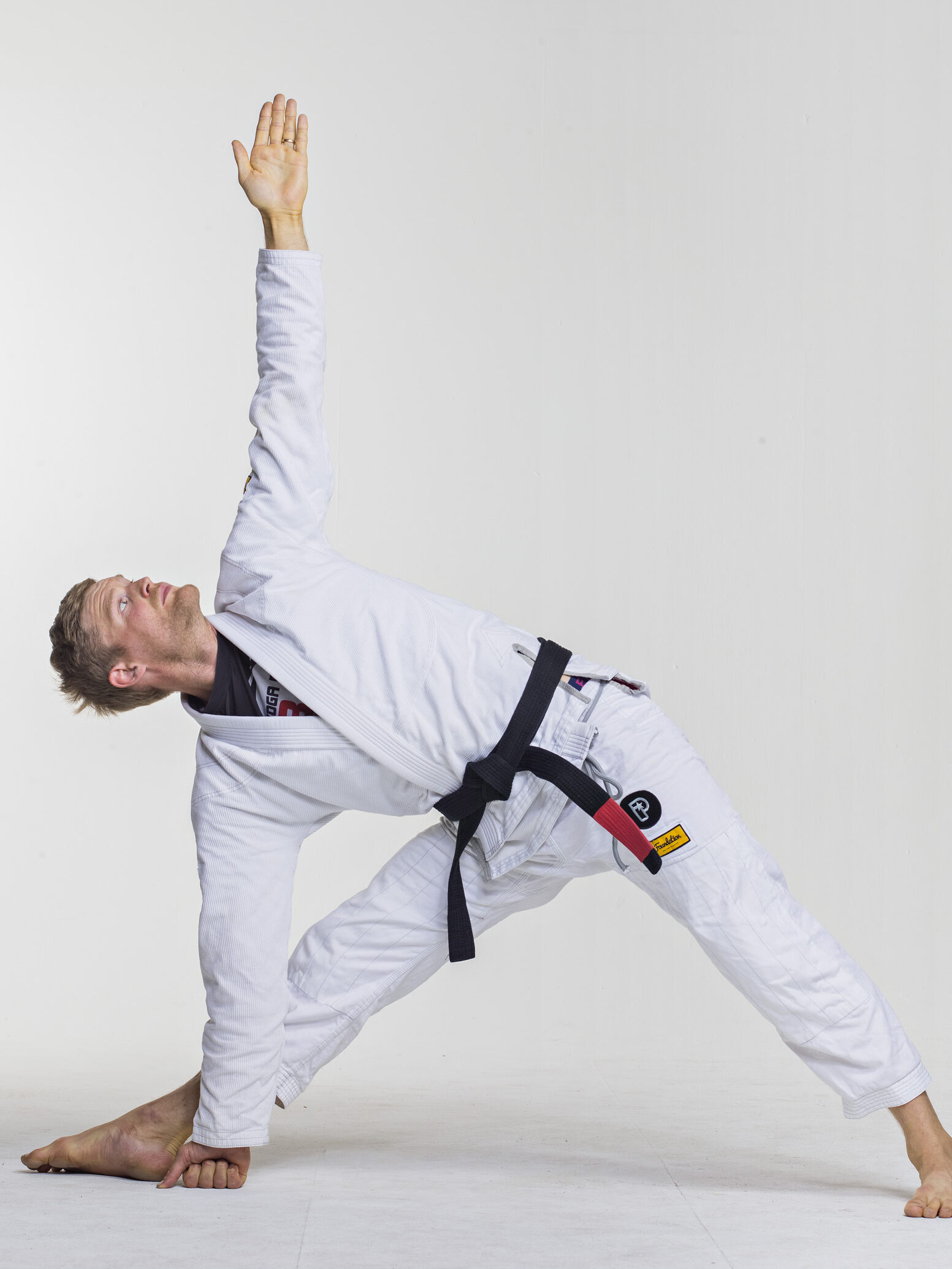Does Brazilian jiu jitsu cause arthritis in the fingers and other joints? In this post I will explain to you what arthritis is, how BJJ causes it, and what to do to limit the damaging effects of BJJ on your joints.

What is arthritis?
According to the Arthritis foundation, “arthritis is a term for more than 100 different diseases that cause the joints to become painful, stiff or lose motion.” It is the most common cause of disability in the United States.
Does BJJ cause Arthritis?
Short answer: yes. BJJ puts a lot of wear and tear on your joints, which contributes to arthritis.
Longer answer: arthritis is an umbrella term for many complex joint issues, and BJJ is a very personal journey. Whether BJJ causes arthritis is partly up to you and your joints.
Personal experiences
For example, I have 1 friend that dislocated his elbow in an armbar in a tournament, because he thought he could escape. Even though that ‘healed up’, I wouldn’t be surprised if that compromised his elbow for the rest of his life.
And I have another friend that has rubber shoulders, and dislocates his shoulders multiple times per year. I would be very surprised if he didn’t carry his shoulder problems with him throughout the rest of his life.
Personally, I dislocated my thumb 6 years ago (outside of BJJ), and it still locks out and hurts, so I’m pretty sure that’s a permanent joint problem for me now.
I have some friends that train BJJ very smartly and gently, and I expect them to have less joint pain when they grow older.
By training smart, you can limit the strain on your joints. Or rather, by training dumb, you can dramatically increase the damage you take.
Tip: What helps me the most to limit my pain and arthritis-like symptoms is Yoga for BJJ. I make myself do it twice per week and I feel much better than when I don’t do it.

Yoga is one of the best natural cures to arthritis-like symptoms
Yoga
VS
Arthritis
How does BJJ cause arthritis?
The repeated trauma to joints that is caused by basic BJJ techniques such as armbars, kimuras, and americanas, can cause inflammation and eventually arthritis. It is generally thought that arthritis starts in the smaller joints of the fingers and wrists and then moves up the arm into larger joints.
The fingers are particularly sensitive to arthritis, for multiple reasons. Firstly, they’re among the smallest joints in the body, and arthritis is most likely to develop in the fingers no matter whether you do jiu jitsu or not. Further, BJJ causes a lot of repeated finger sprains and injuries, which can eventually cause arthritis.
What can I do to prevent BJJ from causing arthritis?
Here’s some quick tips to limit the joint damaging effects of BJJ and hopefully prevent arthritis at a later age.
1. Eat healthy and drink lots of water.
If your body is not getting the nutrients it needs, it will not operate at it’s best. The body is a machine. If you drive a machine that is not getting the fuel it needs, it’s going to break down. As you probably know, water is crucial for lubricating joints. If you are not drinking enough water, your joints are not going to function properly.
2. Stretch before and after BJJ class.
Stretching before class will help to warm up your joints and muscles. It will also help to prevent you from pulling something during class. Stretching after class will help to release the lactic acid built up in your muscles and will help to recover faster.
3. Add strength training
If your muscles are stronger they can take some of the weight off your joints, which can reduce any pain you have in them.
And stronger muscles can also help you to stabilize your joints during Jiu-Jitsu so that you’re less likely to tweak them and get injured.
4. Don’t practice late stage submission defense
You may have seen Garry Tonon escape a late stage arm bar and think: I want to do that too.
But you have to realise that every time you see someone escape a very deep submission they overextended their joints and probably took a few pops.
This might be worth it for professional athletes but for us dirty casuals, it’s not.
If you still really want to break this late stitch submission defence, don’t do it in regular sparring. instead ask your partner to just hold you in the late stage of the submission without cranking it while you try to escape.
5. Use quality joint supplements
If you’re worried about your joints, you might want to take some supplements.
If you read my article about supplements for BJJ, you’ll read that unfortunately there don’t exist a lot of supplements that have been proven to help your joints or prevent arthritis.
The one that’s best supported by scientific evidence seems to be fish oil (which you should be taking anyway for other reasons as well), but most of the other ones seem to have thin support at best.
Personally, I don’t know what to make of this. On one hand I know that supplement science is very new and underfunded, so a lot of things that do work haven’t been proven yet. On the other hand, I don’t want to pay top dollar for placebo pills…
So based on your own joint pain and risk tolerance, you’ll have to decide whether joint supplements are worth it for you.
6. Train more no gi
Whether you train gi or no gi BJJ matters a lot for the damage you take to your fingers.
In the gi you use your fingers much more to make grips and it’s also more likely that you have a traumatic injury because someone rips their sleeve or pant leg out of your hands violently.
So if you’re mostly worried about developing arthritis in your fingers it will definitely help you to swap out a few key training sessions per week for nogi training sessions.
7. Don’t do too much BJJ.
The saying “too much of a good thing is bad for you” is true. If you do too much BJJ, you will injure yourself. To prevent injury, make sure that you know how often you can train BJJ and take days off as needed.
8. Tape your fingers
There’s a reason why people tape their fingers in BJJ, and it’s to avoid long term and short term damage to their small ligaments. Don’t rely on this, but add it if your fingers hurt during training.
Final thoughts on BJJ and arthritis
I feel like the best thing we can do to influence the amount of joint damage we take in Brazilian jiu-jitsu is to adjust our rolling style and training regimen.
Personally I think I do a pretty good job of not training too hard and tapping out when something hurts.
But I could probably do better in terms of taking rest days when I have small injuries.
Or at least train something else that’s not as hard on the joint that is hurting.
Otherwise I’ll be banging my head when I’m older and I’m in pain from my arthritis everyday.
